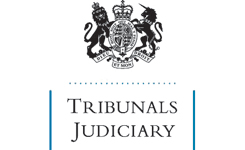|
Notes:
|
Reported as [2011] AACR 3.
Tribunal procedure – case management of successive applications to First-tier Tribunal by patients subject to sections 2 and 3 of the Mental Health Act 1983 – effect of community treatment order on reference to First-tier Tribunal
KF and MO were both admitted to hospital initially under section 2 of the Mental Health Act 1983 and both appealed to the First-tier Tribunal. Both patients were transferred to detention under section 3 of the 1983 Act before the expiry of their section 2 admissions. Both section 2 appeals were dismissed. KF appealed against her section 3 admission to the First-tier Tribunal after the section 2 hearing, but MO had appealed against her section 3 admission by the time her appeal was heard. Although there were errors of law in the tribunals’ decisions, the First-tier Tribunal refused permission to appeal to the Upper Tribunal and did not change the decisions on the basis that the challenges were “academic”, given that the patients had pending section 3 applications. The third appellant FF was admitted under section 3 and the hospital managers referred his case to the First-tier Tribunal. Before the reference could be heard, he was discharged under a community treatment order. The tribunal decided that the effect of that was that the reference ceased to have effect. FF applied for permission to appeal or a review of that decision. On 2 June 2009 the First-tier Tribunal decided to take no action as regards the review decision and refused permission to appeal. The Upper Tribunal granted permission to appeal to all three appellants.
Held, allowing the appeals, but exercising its discretion so as not to set aside the decisions of the First-tier Tribunal, that:
1. although the appeals to the Upper Tribunal were largely supported, there was good reason in the public interest for hearing them as there were important issues of principle, concerning the individual’s right to liberty, to be determined, one of the functions of the Upper Tribunal being to provide authoritative guidance to the First-tier Tribunal (paragraphs 3 to 6);
2. if the First-tier Tribunal is asked to review a tribunal decision on a section 2 application, and concludes that it involves an error of law, then in general the appropriate way forward is for the First-tier Tribunal to set aside the substantive decision and to re-list the case for hearing together with any existing section 3 application, using the extensive case management powers now available under the Tribunal Procedure (First-tier Tribunal) (Health, Education and Social Care Chamber) Rules (paragraphs 30 and 35);
3. under Article 5(4) of the European Convention on Human Rights it remains incumbent upon the State to ensure that proper arrangements are in place for speedy hearings of detained patients’ applications and, in addition, the overriding objective under the HESC Rules of dealing with cases fairly and justly specifically includes “avoiding delay, so far as compatible with proper consideration of the issues” (rule 2(2)(e)) (paragraphs 31 to 34);
4. where a patient seeks the tribunal’s consent to withdraw an appeal, the case will depend very much on the particular circumstances, and when considering such an application the First-tier Tribunal should always have regard to the overriding objective and its extensive case management powers (paragraphs 36 to 38);
5. in MO’s case the tribunal had mistakenly applied the section 2 criteria in section 72(1)(a) rather than the section 3 criteria in section 72(1)(b), as required by R v South Thames Mental Health Review Tribunal, ex parte M [1998] COD 38 (paragraph 43);
6. where the patient has been released, there will often be no individual or wider public interest in continuing proceedings, but it may remain appropriate for there to be further scrutiny of the initial First-tier Tribunal decision if there is a danger either that a future decision-maker may give inappropriate weight to a flawed decision or an urgent need for the legal principles at stake to be clarified (paragraphs 40 to 41);
7. in AA v Cheshire and Wirral Partnership NHS Trust [2009] UKUT 195 (AAC) it was held that an application to the First-tier Tribunal made while a patient is detained under section 3 does not lapse if the patient is discharged from hospital under section 17A, subject to a community treatment order, and the same principle applies to a reference to the First-tier Tribunal by hospital managers (paragraph 57).
|
